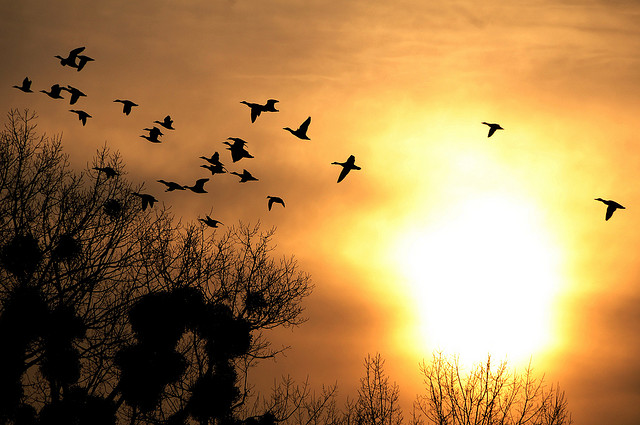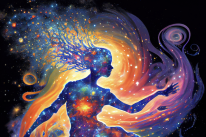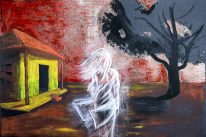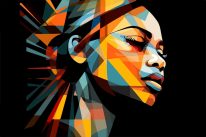
“Wherever you go, there you are.” ~Confucius
Everything I do is about living and sharing freedom. But what is freedom anyway?
To understand freedom, it’s helpful to understand its opposite. The opposite of freedom is feeling caged, constricted, and ruled by guidelines you don’t believe in.
For many people, their job feels like jail. For some people, their community feels like jail. For others, school feels like jail.
I’ve been in all those jails. And for the most part, I was in those jails because I didn’t know there was an alternative. Now that I know the alternative, I have consciously created a life of freedom, but it wasn’t always this way.
I grew up in very religious schools, which felt like a jail, mentally and physically. There were strict rules governing what you could wear and eat and what was expected from you. Living in that jail mentality was stifling, and my need for freedom was bursting at the seams of my soul.
For several years I was curiously obsessed with social justice and the prison system. I now recognize that my fascination stemmed from my feelings about living in a jail of sorts during my youth.
At seventeen I left my hometown and embarked upon finding freedom and discovering who I was.
When you live in a jail-mentality for the bulk of your life, you get out into the big wide world and feel utterly lost. That was me—lost, and essentially going from one jail to another.
From the strict schools of my youth, I went straight to University, not knowing about the other options that were out there. And once again I felt caged. I felt jailed by the confines of my schedule and limited resources.
I was desperate to break free, so I found a summer job in New Hampshire that would give me room, board, pay, and a new experience.
I was taken by New Hampshire the moment I read the state’s license plate: Live Free Or Die. I knew I had landed in the right place. There, I met people from all over the world who had a similar freedom-travel-spirit mentality.
Coincidentally, I met someone there who shared my intrigue with the prison system and social justice, and informed me that I could talk to prisoners on death row.
While communicating with one inmate through letters, I learned that true freedom is in the mind.
That shook me.
I had heard that phrase before, but it wasn’t until I heard it from somebody who was really locked up that it hit home and touched my soul.
Imagine being constrained to solitary confinement. Imagine being thrown into the prison “hole,” a place of pure darkness, without the freedom to see. Imagine having your every move watched, being told when you can eat, shower, and sleep. And imagine even after all that, recognizing that you can still have freedom because it is in the mind. That’s a powerful awareness.
I knew that I was the only one putting the shackles on me. Although this message penetrated, it would take me several years to fully understand it.
After I left New Hampshire, I had a string of adventures and travels that allowed me freedom, possibility, and a life outside the status quo.
For several years all the outward travel fed my need for freedom. But there came a point where it was no longer freeing. I was starting to fall back into feeling jailed, despite making free and adventurous choices.
I knew I had to start moving inward if I was to find true freedom. So began my inner journey.
I started seeking out spiritual books from Deepak Chopra and Louise Hay, and reading the words from John Kabat Zinn, which resonated with me more than anything else. His book Wherever You Go, There You Are was like lightning hitting my heart.
That line was exactly what I had experienced—despite all my travels, where I searched for freedom on the outside, wherever I went, I was still there. I still had to deal with my own limitations and the blocks that I was creating within my own mind.
These limitations pertained to my self-confidence and self-worth—how I thought about myself, and what I believed about my ability to go after what I wanted and succeed. In perpetually thinking I couldn’t do things I wanted to do and that I wasn’t worthy of them, I paralyzed myself with fear.
You need to believe you can do something before you can find the motivation to take action on it. And my beliefs were limiting my actions. Although I was traveling from place to place, my internal limitations came with me.
It’s been a decade since I got that book, which focused heavily on meditation. I have since found the practice of pure presence to be one of the most powerful gateways to freedom. Meditation has this uncanny ability to break away the false self—the self-sabotaging thoughts and limiting beliefs.
So where is freedom? Is it inside us? Is it about our outside choices?
For many years the outward journey did the trick for me. It had an effect on my soul, although I did not have the understanding to recognize it at the time. However, the outward journey only took me so far.
I have found that ultimately it’s the inner journey that leads to lasting freedom.
I still enjoy “getting away” and having adventures. But I have come to recognize that in the confines of the outward journey I can still feel caged. It is only through going inward, specifically through practices of meditation and being present, that I can access long lasting freedom that endures, regardless of my outward circumstances.
If you are looking to enhance the freedom in your life, take some time to pause from your day and practice being fully present with the moment as it is.
Ironically, this is likely why travel is such a great way to feel free. When we travel, we’re more present by virtue of the newness around us—the change of culture or scenery. Everything is so new, so we are like babies enthralled by our surroundings and naturally we get out of our head and are deeply connected to the moment. It is, in effect, living a meditation.
The magic of a meditation practice (and yes, five minutes will do the trick!) is that you can train yourself to strengthen the muscle of presence in your everyday life, so that you can have access to that freedom no matter where you are.
Although five minutes may sound simple, it can still be challenging, so I recommend committing to a specific time, such as first thing in the morning, to ensure you do it.
Then, any time that you feel constricted, scared, stifled, or confused, you can tap into the practice of meditation to help you reconnect with yourself, and reconnect with an inner sense of freedom. This won’t change physical circumstances that may feel constricting, but when you free yourself of mental limitations, it’s a lot easier to find solutions to physical ones.
Meditation is a vehicle to freedom because it often gives us clarity, and allows us to free our mind from our blocks and limitations. Meditation helps us access our intuition, which can guide us to the things that will help us live a more purposeful, freedom-filled life.
Freedom truly is in the mind. If you feel caged in yours, remember, presence is the key.
Photo by Kamil Porembiński
About Tova Payne
Tova Payne is an author & personal coach. Her newest book, Eat Think & Live Rich: A Guide to Health and Happiness, is now available on Amazon. She runs a virtual coaching practice helping people turn their dreams to reality. For a FREE guide to starting and finishing your dream projects and weekly inspiration, sign up with Tova at tovapayne.com. Connect with Tova on Facebook.













 Though I run this site, it is not mine. It's ours. It's not about me. It's about us. Your stories and your wisdom are just as meaningful as mine.
Though I run this site, it is not mine. It's ours. It's not about me. It's about us. Your stories and your wisdom are just as meaningful as mine.
This is so interesting. The feeling of being “in jail ” is also such a good description of what it feels like when you have lost contact with your authentic self and are living an unauthentic life. And meditation and mindfulness is the best way to reconnect with yourself when you are lost.
You are never more free and powerful then when you are expressing your unique self.
Yes! Thanks for sharing your insights 🙂
Beautiful read. I don’t personally meditate, but I have
heard so many good benefits from it—more and more lately. I do practice sitting
with myself and relaxing in the present moment, so maybe that’s a start from
full on meditating. I do resonate with the feelings of feeling trapped and “jailed.”
For most of my teenage years I thought moving to a new state and starting over
would bring me that sense of freedom and happiness. Although I have never moved
from the state I reside in, I have traveled quite a bit to ease the adventure
bug I have inside. When things got really hard, especially a couple years ago,
I would often imagine my life in a new place doing new things and being “free.”
Long story short, I have realized my personal happiness resides closely with my
close relationships, human connection, and my chosen positive outlook on my
environmental surroundings regardless of location. I already am free… always
was. I just had to see it. Thank you for sharing your experience.
Wow. Thanks Mariel for sharing yours! And sounds to me that your time of sitting, relaxing and being present IS meditation! I wholeheartedly believe the benefits of meditation are not merely found in lotus pose! It’s all about setting the intention to be fully present and simply being with the moment as it is. That can happen in a hammock, swimming pool, sitting with ourselves ( and yes, even lotus 😉
Since I have a blog and mostly I spend time reading websites, the green zone of meditation is expanding and I am really happy for that. Its like positive virus spreading more and more. I still haven’t started with meditation and yoga but that’s my goal these year. Really glad to hear that people find their way throughout stuff such as the “imprisonment” you found. Great article and thank you for sharing your revelation.
Thanks Nikola. And I truly believe that 5 minutes a day will make a massive difference. I have a free meditation audio + e-book on my site if you want to check it out
Definitely I will, since I’m out of directions 🙂
I love this! 😀 Shared it on my fan page and Twiter. <3
Thank You!
Meditation made me more aware of my own emotional hooks. When you are unaware of your hooks, you aren’t free because you bite without thinking and end up wherever the story line takes you. It’s still okay to bite once you become mindful, but now you can do it from a place of empowerment. You recognize what you’re about to do and you make the decision to bite or not. For me, that’s freedom.
Tova,
This was a really enjoyable read. I’ve definitely found that the external factors in my life are never the real limitation to my freedom. You definitely have to be good with yourself before you can live a truly full life.
Turn off all the nay saying that loops in the back of your head, and you’ll certainly find some peace. Meditation is a great suggestion.
Thank you again for sharing such awesome points. Make peace with yourself, and you’ll find the world to be a much brighter place.
So inspirational (as usual) Tova! And what a cool journey! I love learning from your stories. As a fellow freedom seeker I can totally relate to how easy it is to often jail ourselves…. and how important it is to remember that WE can also set ourselves free. Thanks for this and I can’t wait to try your suggestions!
Thank You Susan, I appreciate your words (hug) 🙂
Thank you. I feel trapped for a while now, due to excess stress and requirements and I have this urge just to run away.. So practicing not even work well. A few more days, then it will hopefully better. 🙂
You hit a lot of good points in this post. To be truly free, the journey is inward. There are many great teachers before us who have shown us this: Nelson Mandela, Viktor Frankl. One was in jail; the other, a concentration camp yet they felt free. I have discovered, as you have, that peace is focusing on the present moment; tension is wanting to be somewhere else but here and now.
Wow Tova!
You could’ve been writing about me!! I also grew up in strict religious surroundings and at around 19 (when still at uni) I had the urge to ‘break free’ of this jail, but due to guilt I couldn’t/wouldn’t. This continued for a few years and like you, I travelled….a lot, searching for (and finding!) this freedom which eluded me in my daily life. I’ve recently realised that I don’t need to travel to find such freedom….but I need to stop looking outwards and start looking within. I’ve been trying to do this for a while now (with a few ‘lightbulb moments’ along the way lol!!) but reading your blog today helped me to see that I am on the right path…so thank YOU! Meditation, yoga and just being grateful for all the amazing things/people in my life helps to keep me on this path to inner peace and freedom…while remembering it’s a perpetual journey and not a destination 🙂
Wow Thank You so much for sharing, this is amazing!
This post has come exactly at the time when I’m really beginning to realise the power of meditation, life has been changing for me and I’ve changed my ‘journey’ due to a variety of factors, now when I notice something is nagging at me in a negative way I meditate and release that nagging feeling into what is really going on inside. It’s so amazing. Feeling present is so so simple, and so so effective – I wish I’d found it sooner!
As much as we feel free ourselves, it does not change the world, sort out its problems like corruption and terror and lies that flow through every part of society. Doing this doesn’t really fix anything, then help us feel better alone.
Hey
Your experiences are really great to read.
But what u should do when u are not at all allowed to do anything .everything about your life is already fixed by your family.the plan I have for my future I just shared them with parents and the answer came no cause I asked them to study in college of my choice which is coed and not because of financial issues but because there will be boys.and even if I leave that thing the they have already decided that I will married to someone of there choice and again I will have nothing to fulfill my dreams.the wings they have given me when I was young are now on verge of being cut .
I feel like societies laws are what is restricting my freedom of choice. Why am I told that something is illegal because other people think that it is wrong. Shouldn’t I be allowed to make my own decisions. Just because group A thinks something is wrong doesn’t mean group B should be restricted by group A’s opinion. The real jail is being told what you can own, watch, do, say, etc.. Let people make their own choices. Western society has gone to far by making things illegal just because group A decided that something is wrong. Here is an example (although creepy and disgusting). Group A says that incest is wrong and should be illegal. Go on Goggle and look for incest videos. Here is a group of people, group B, that obviously doesn’t believe that incest is wrong or should be illegal. Yes I do believe that incest is wrong and against God, but that doesn’t mean that anyone has the right to tell them otherwise. Freedom of choice! Our current system of law is discrimination against people’s right to choose. I believe that government should only do what is right for all the people, not just group A. For a society to truly be free it must stop forcing everyone to the same (robots). I want to be free of this kind of jail. Thanks and God Bless Everyone (tiny Tim quote).